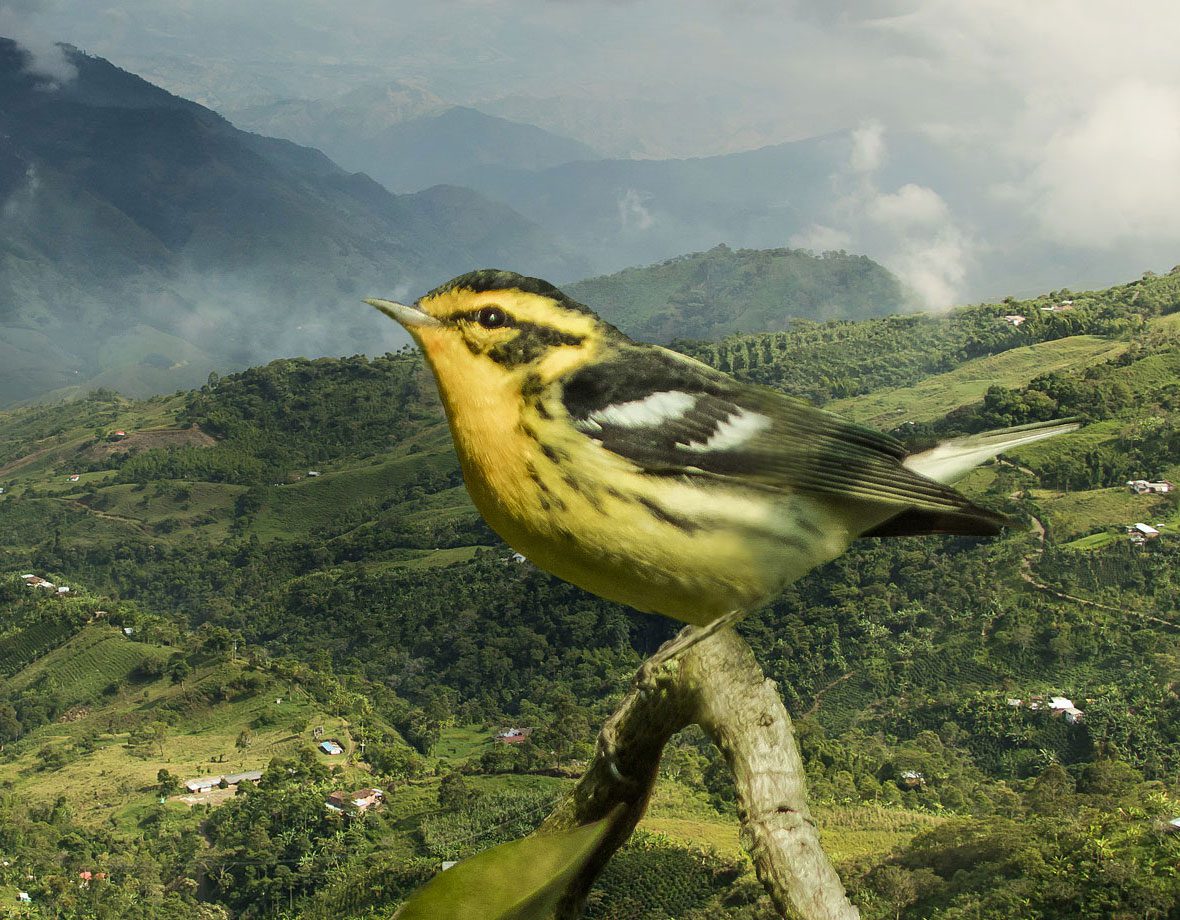How can coffee help or harm birds?

Coffee can be grown under the shade of a canopy, or it can be grown out in the open sun. So-called “sun coffee” is resource-intensive and offers far less habitat for birds. “Shade-grown coffee” tends to support more bird species and require fewer pesticides and fertilizers—although different kinds of shade coffee can be better or worse for birds and the environment. Here’s the background:
The Dutch introduced coffee to the New World in the 1700s as a forest-floor crop grown under a dense overhead forest canopy. Today some coffee farms still use this traditional, rustic method of growing coffee. Artificial fertilizers aren’t as necessary, because decaying leaf litter recycles nutrients to feed the coffee plants. Pesticides aren’t needed, because more birds are around to eat insect pests. Many tasters find this rustic coffee yields a higher quality brew that tastes richer. This is partly because forest coffee isn’t machine harvested but picked by hand, allowing people to choose only the ripe coffee berries.
But modernization in coffee growing has introduced sun-tolerant varieties of coffee that can be grown in the open and tend to have higher yields than shade-grown coffee. The technique is much harder on the environment, however. Forest must be cut down; pesticides and fertilizers are employed to stimulate yields, and higher profits. In some places, sun-grown coffee has come to dominate the landscape. For example, in Colombia, about 70 percent of coffee croplands have been converted to sun-grown operations.
Shade-coffee farms beneath forest canopy provide critical strongholds of quality habitat for Neotropical migrants, according to Bridget Stutchbury of Toronto’s York University. At least 42 species of North American migrant songbirds spend winters in coffee plantations, and 22 of those species have declining population trends, Stutchbury said. This makes traditional coffee farms an important resource. Conversion of tropical forest to sun-grown operations is happening right now, when songbirds can least afford to cede more ground.

All About Birds
is a free resource
Available for everyone,
funded by donors like you
American Kestrel by Blair Dudeck / Macaulay Library
